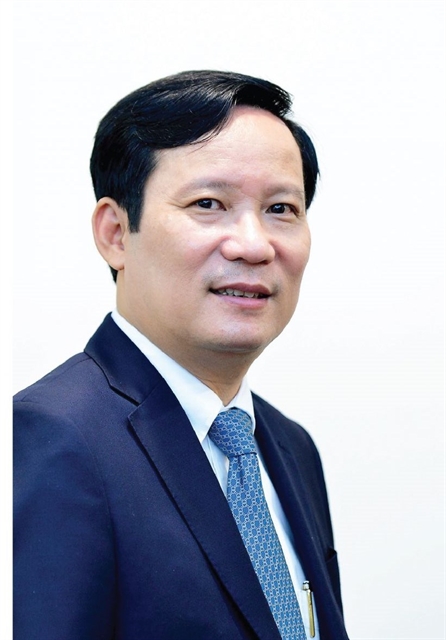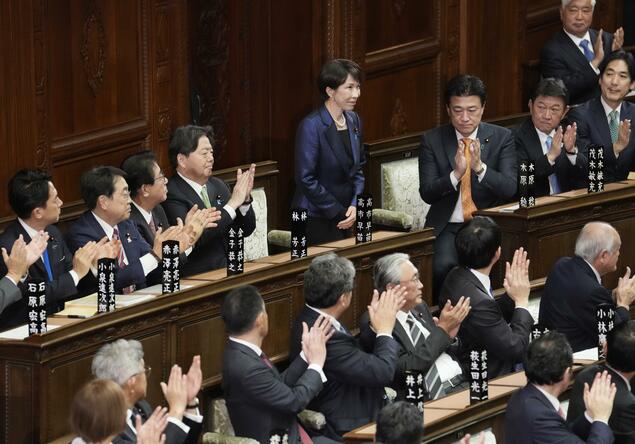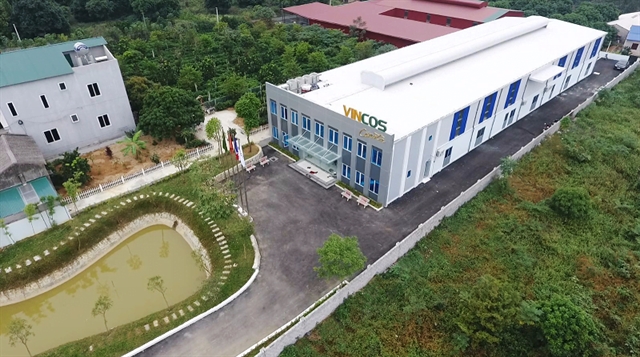 Economy
Economy


|
| VCCI chairman Phạm Tấn Công |
The recent 'earthquake' caused by the US’ imposition of reciprocal tariffs has once again sounded the alarm about a rapidly evolving and unpredictable global trade order.
The chairman of the Việt Nam Chamber of Commerce and Industry (VCCI), Phạm Tấn Công, spoke to the Vietnam News Agency about the risks of a global trade war and his recommendations for adapting to this challenging new landscape.
How do you assess the current state and challenges of global trade, especially after the US has announced reciprocal tariffs on imported goods?
The global trade landscape has undergone significant changes. Protectionism is making a comeback. It creates conflicts between such protectionism and free trade.
The US is a major global market. In the context of globalisation and free trade, these newly-imposed high tariffs have been a major shock. They disrupt the flow of global trade, and the consequences are difficult to predict.
Countries around the world have reacted strongly, even US allies. Although there are differing opinions, it’s undeniable that this change has triggered a trade 'earthquake' with far-reaching effects.
This is not the first time Việt Nam has faced such a significant international trade challenge, is it?
That’s correct. Việt Nam has faced serious trade shocks before. For example, more than 30 years ago, during Việt Nam's beginning period of renovation, the country encountered major difficulties following the collapse of Eastern European economies.
Now, Việt Nam is entering a new era, the US - Việt Nam's largest export market and key economic partner - has completely shifted its trade strategy.
I believe that Việt Nam has learned important lessons from the past. In the face of challenges, it has always found new drivers of growth, turning adversity into opportunity.
This is the time for Việt Nam to define a new path for development. The current situation requires calmness to find solutions and strategies for addressing difficulties and moving forward.
How do you evaluate the Government’s and the business community’s response to this situation?
In recent days, the Government, relevant sectors, and enterprises in Vietnam have been proactive in seeking solutions. Following talks between General Secretary Tô Lâm and US President Donald Trump, a special envoy from the Vietnamese government went to the US to promote negotiations aiming at achieving the most favourable outcome.
At home, VCCI has formed a dedicated task force, working closely with organisations like the American Chamber of Commerce (AmCham) in Việt Nam and AmCham in Washington. We expect support from the Government in overcoming these challenges.
VCCI has also reached out to its partners, such as the Los Angeles and San Francisco chambers of commerce, to build a business coalition that collectively voices opposition to the new tariffs.
Thanks in part to this unified response from the US business community and pressure from the global stock market, President Trump has announced a 90-day delay in enforcing the new tariffs.
For governments, these 90 days present an opportunity to negotiate the best possible deal. For businesses, it’s a crucial window to manage ongoing contracts, review production plans and reassess market strategies.
This is a time for cooperation. In the ASEAN community, for instance, while each country has its own unique characteristics, there must be consensus on key principles, such as promoting global free trade and upholding international trade laws.
Meanwhile, Việt Nam prioritises negotiations to secure favourable terms and not lose existing competitive advantages.
Simultaneously, we need to develop flexible solutions and scenarios to remain proactive. Whether negotiations yield high, moderate or low tax results, we must prepare appropriate strategies and policies to support the businesses as well as the economic development.
This situation also offers an opportunity for change. It calls for a clear and long-term strategy. Việt Nam must continue to reform institutions, improve the business environment, diversify markets and product lines and redefine Việt Nam’s strengths and competitive advantages for the future.
Now is also the right time to accelerate broader reforms, such as realigning local development plans and promoting science and technology, to boost national competitiveness and enhance Việt Nam’s global position.
We must broaden our view of market diversification. That means developing the domestic market alongside expanding exports.
In addition to signing new Free Trade Agreements (FTAs) and entering new markets, Việt Nam should also promote domestic consumption and allocate part of the increased state revenue to support business growth while boosting public investment.
Crucially, the enterprises need support from relevant parts to expand market access, upgrade their technologies, access financial tools and land resources and more support programmes to encourage their development.
Those solutions are expected to help Việt Nam's businesses not just survive, but thrive, turning Việt Nam into a leading hub for international goods trading in the near future. — VNS




